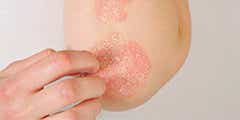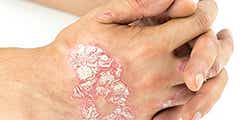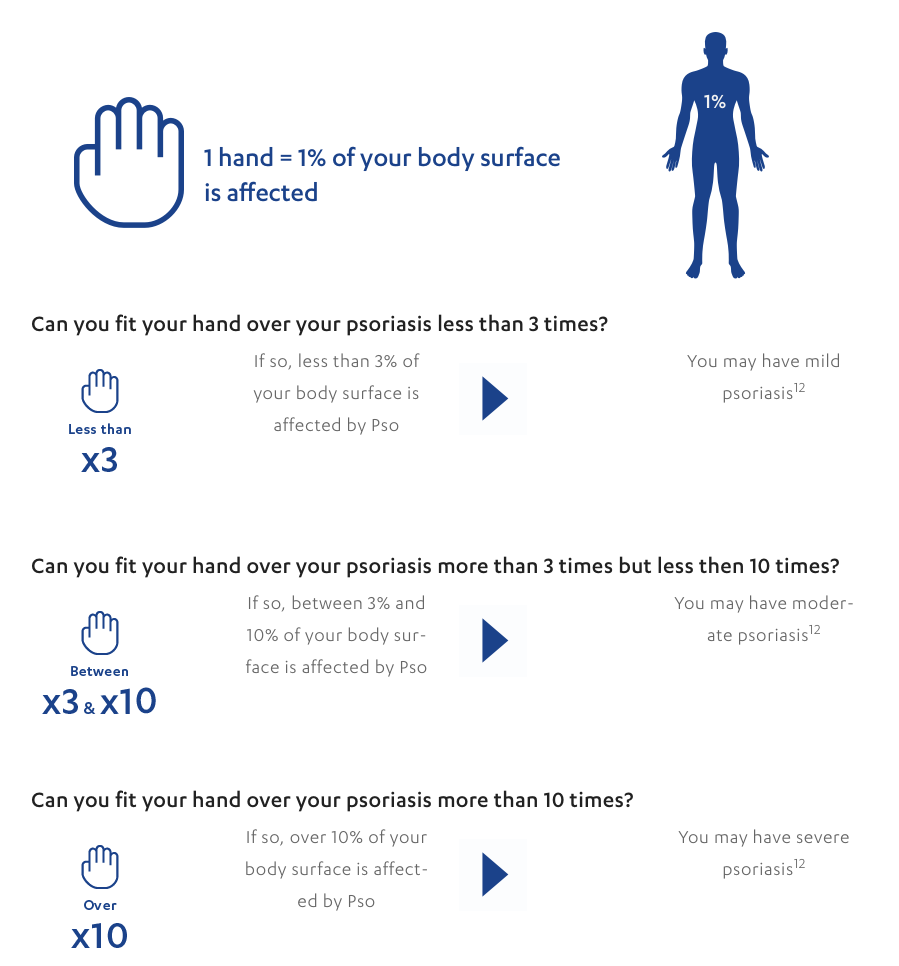What does Pso feel like?
What does Pso feel like?
Psoriasis (Pso) is an immune-mediated inflammatory disease, and its effects can go far beyond skin. As well as causing pain, discomfort, itching and resulting insomnia, it can also make sufferers feel very unhappy. A study comparing psoriasis to other prominent conditions found its mental and physical impact comparable to that seen in cancer, heart disease and depression – 37% of people with Pso have experienced suicidal thoughts. Perhaps this is partly because many face social exclusion and discrimination because of their condition. If you have Pso and are feeling low, whether or not this is because your symptoms aren’t under control, please speak to your doctor so that your physical or mental health, or both, can be treated.
TOP TIP
Try replacing soap and shower gels with moisturising creams, such as emollients
The impact of Pso
Length 01:17
If you suffer from Pso, you may already know that it can be unpredictable and leave you not knowing where you stand. Pso inflammation is always there, even if you can’t see it, so at times, your symptoms may seem under control, but at other times not. You may suffer mildly at one point, and more severely at another. If you feel that your Pso isn’t under control, or you’re noticing any new symptoms, it’s important to speak to your healthcare professional –
we’ve put together some tips to help you
. Around a third of people with Pso will also develop psoriatic arthritis, so speak to your doctor if you have painful, stiff, swollen joints, painful tendons, or swollen fingers or toes. Your doctor is there to help you, and make sure you’re on the right treatment for you.

Itching
- Might feel like a burning/stinging sensation
- Can make it difficult to concentrate, relax, sleep, or enjoy what you’re doing

Plaques
- Red, inflamed ‘plaques’ or patches of skin can be scaly, itchy and painful
- Can appear anywhere on the body
- Might be a few at a time or many, close together or far apart
- May seem to disappear and then come back

Flaking
- Flakes of skin can fall off any areas where you have Pso plaques or patches
- These flakes are not contagious
Pso severity checker
If your doctor has already diagnosed you with plaque psoriasis, part of learning about your condition is understanding how severely your body surface is affected. Wondering how much of your body surface is affected by your Pso? To work it out, use one hand as a guide – it represents roughly 1% of the total body area. So, if you think the plaques on your body cover the equivalent of 5 hands, that equals 5% of your body. But remember, even if your Pso doesn’t affect much of your body surface, it may still be considered severe if the parts it does affect are very inflamed or feel very thick or scaly, or if it has a big impact on your quality of life.
How severe do you think your Pso is?

Want to make the most of your doctor's appointment?
If you are experiencing symptoms, or don’t feel that your treatment is controlling your Pso, please speak to your healthcare professional. Take a look at our helpful tips to help you have a productive conversation during your next appointment.



